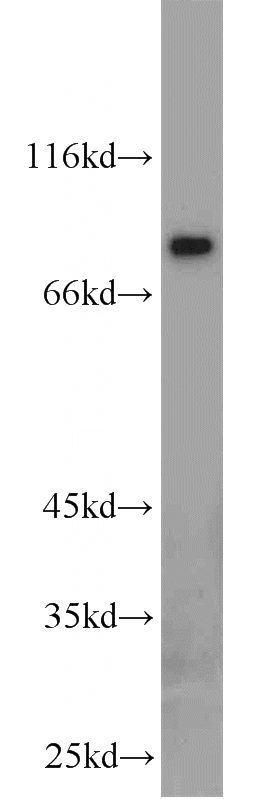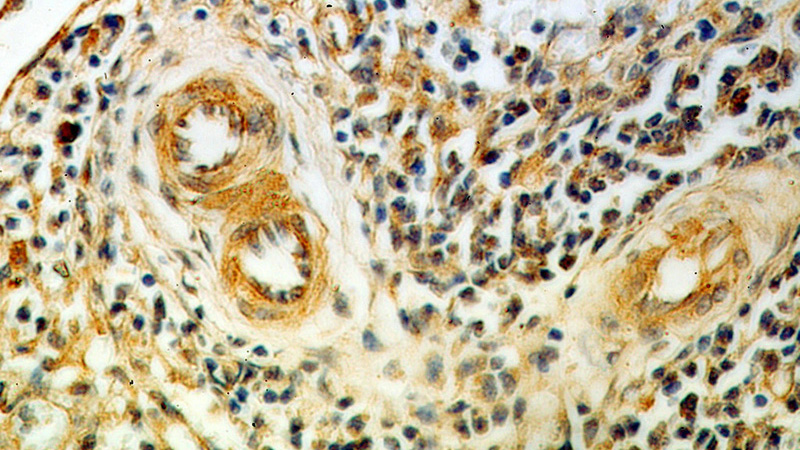-
Product Name
AGGF1 antibody
- Documents
-
Description
AGGF1 Rabbit Polyclonal antibody. Positive WB detected in mouse liver tissue, HEK-293 cells, HeLa cells, rat liver tissue. Positive IHC detected in human spleen tissue. Observed molecular weight by Western-blot: 84-100 kDa
-
Tested applications
ELISA, WB, IHC
-
Species reactivity
Human,Mouse,Rat; other species not tested.
-
Alternative names
AGGF1 antibody; Angiogenic factor VG5Q antibody; FLJ10283 antibody; GPATC7 antibody; GPATCH7 antibody; HSU84971 antibody; HUS84971 antibody; hVG5Q antibody; VG5Q antibody
-
Isotype
Rabbit IgG
-
Preparation
This antibody was obtained by immunization of AGGF1 recombinant protein (Accession Number: BC029382). Purification method: Antigen affinity purified.
-
Clonality
Polyclonal
-
Formulation
PBS with 0.1% sodium azide and 50% glycerol pH 7.3.
-
Storage instructions
Store at -20℃. DO NOT ALIQUOT
-
Applications
Recommended Dilution:
WB: 1:500-1:5000
IHC: 1:10-1:100
-
Validations

mouse liver tissue were subjected to SDS PAGE followed by western blot with Catalog No:107828(AGGF1 antibody) at dilution of 1:1000

Immunohistochemical of paraffin-embedded human spleen using Catalog No:107828(AGGF1 antibody) at dilution of 1:25 (under 40x lens)
-
Background
The angiogenic factor gene, AGGF1 (or VG5Q), is identified as a candidate susceptibility gene for Klippel-Trenaunay syndrome (KTS) which is a severe congenital disorder characterized by capillary malformations, venous malformations or varicose veins, and hypertrophy of the affected tissues. AGGF1 protein can bind to endothelial cells and promote cell proliferation. AGGF1 shows strong expression in blood vessels and is secreted as vessel formation is initiated. Regulation of AGGF1 by GATA1 may play roles in endothelial cell biology and angiogenesis.
-
References
- Lu Q, Yao Y, Yao Y. Angiogenic factor AGGF1 promotes therapeutic angiogenesis in a mouse limb ischemia model. PloS one. 7(10):e46998. 2012.
- Xu Y, Zhou M, Wang J. Role of microRNA-27a in down-regulation of angiogenic factor AGGF1 under hypoxia associated with high-grade bladder urothelial carcinoma. Biochimica et biophysica acta. 1842(5):712-25. 2014.
Related Products / Services
Please note: All products are "FOR RESEARCH USE ONLY AND ARE NOT INTENDED FOR DIAGNOSTIC OR THERAPEUTIC USE"
